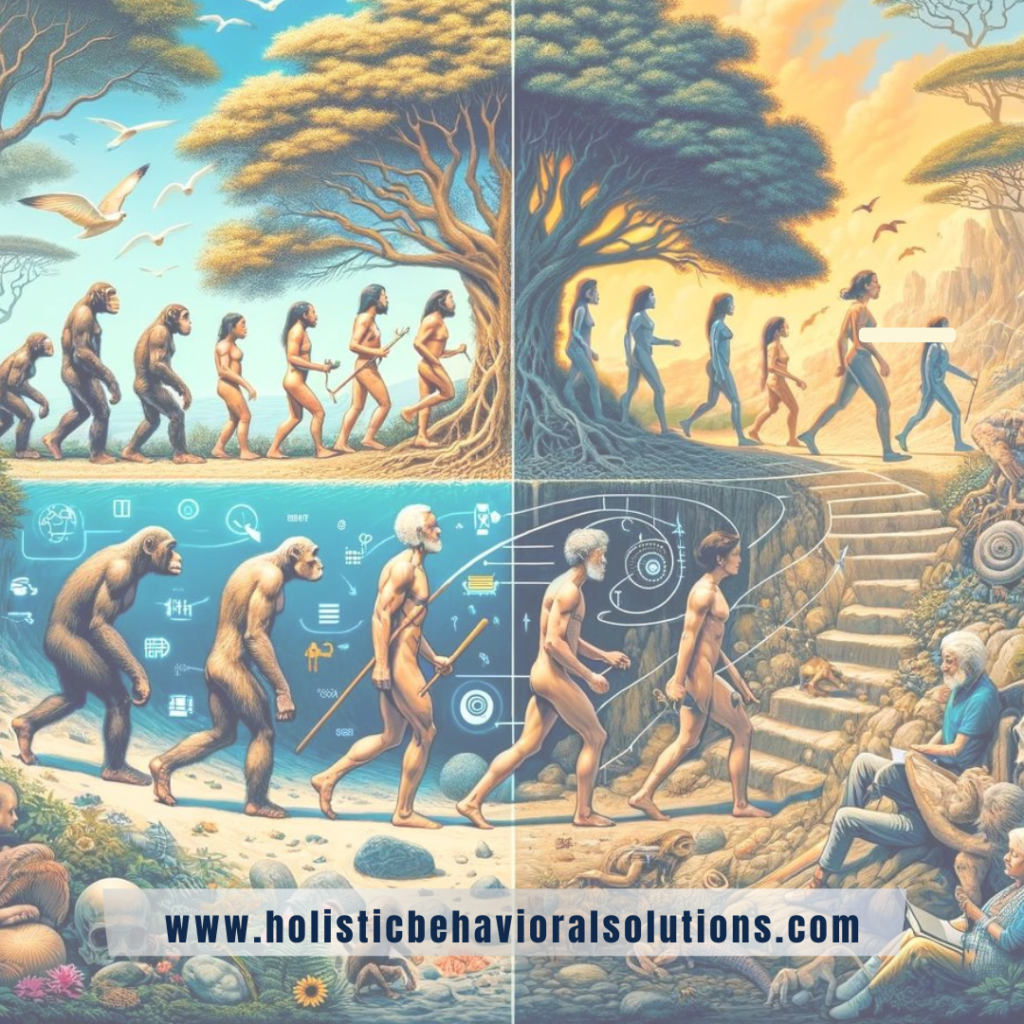
ADHD and Foraging Instincts: Rethinking Neurodiversity as an Evolutionary Strength
How we seek out and manage resources isn’t just about survival—it’s deeply tied to our biology and evolutionary history. New research is shedding light on how traits associated with Attention Deficit Hyperactivity Disorder (ADHD) may reflect ancient adaptive behaviors. Instead of viewing ADHD solely through a deficit-based lens, it’s time to consider: what if ADHD is, in some ways, an advantage?
ADHD and the Ancestral Forager’s Mindset
Foraging—the process of deciding when to stay and when to explore—has shaped the behavior of mobile species for millennia. Whether hunting, gathering, or moving through unfamiliar terrain, early humans had to constantly evaluate whether to stick with what they knew or take a chance on something new.
Sound familiar? Traits common in ADHD—such as distractibility, quick decision-making, and impulsivity—mirror these same instincts. In nomadic or unstable environments, being able to rapidly shift attention or move on from depleted resources wasn’t a flaw. It was essential for survival.
The Study: Simulating Foraging in a Digital World
To test this theory, researchers created an online simulation mimicking ancestral foraging patterns. Participants gathered virtual resources from “patches” that eventually ran dry. They then chose whether to stay and keep collecting or move to a new area—at a cost.
Each participant also completed a validated ADHD self-report screening. This allowed researchers to explore how ADHD traits influenced foraging behavior.
Key Findings: The Strength of Quick Decision-Making
Here’s what they found:
- Participants who screened higher for ADHD traits were more likely to leave depleting patches sooner, especially when the cost of moving was low.
- This quick-switch behavior resulted in higher overall reward rates for those participants.
In other words, individuals with ADHD traits were more efficient at moving on and maximizing outcomes. In an unpredictable world, this kind of mental flexibility and risk tolerance would’ve been a game-changer.
Reframing ADHD: Evolution, Adaptation, and Self-Worth
Rather than labeling ADHD as a dysfunction, this study adds to a growing body of evidence that it’s an adaptive trait rooted in our evolutionary past. And yet, many with ADHD carry the burden of being “too much” or “not enough” for a modern society built around structure, conformity, and stillness.
The emotional toll—rejection sensitivity, burnout, chronic low self-esteem—often stems not from the traits themselves, but from how those traits are misunderstood or unsupported.
That’s why, in therapy and coaching, reframing is such a vital tool. Understanding ADHD as an adaptive brain style allows people to reclaim their identity, build self-compassion, and lean into their strengths.
From Survival to Strength
Context matters. What may be seen as impulsivity in a classroom or restlessness at work could actually reflect a finely tuned survival mechanism—one that helped our ancestors adapt, thrive, and move toward opportunity.
This research invites all of us to rethink what it means to be “wired differently” and to honor the diverse ways our minds engage with the world.
The Holistic Store: Fueling the Forager Within
While you’re reflecting on your own internal rhythm and adaptive strengths, don’t forget to take care of your foundation. Our wellness supplements are designed to support mental clarity, focus, and emotional resilience—especially for those navigating the world with ADHD and other neurodivergent identities.
Visit The Holistic Store to find wellness tools that help you thrive, not just survive.
PS: Are you a culturally competent IIC clinician passionate about guiding others toward resilience? Our practice is growing, and we’re hiring in New Jersey! Check out our Careers page for current openings and join a team dedicated to fostering impactful, inclusive mental health support.

